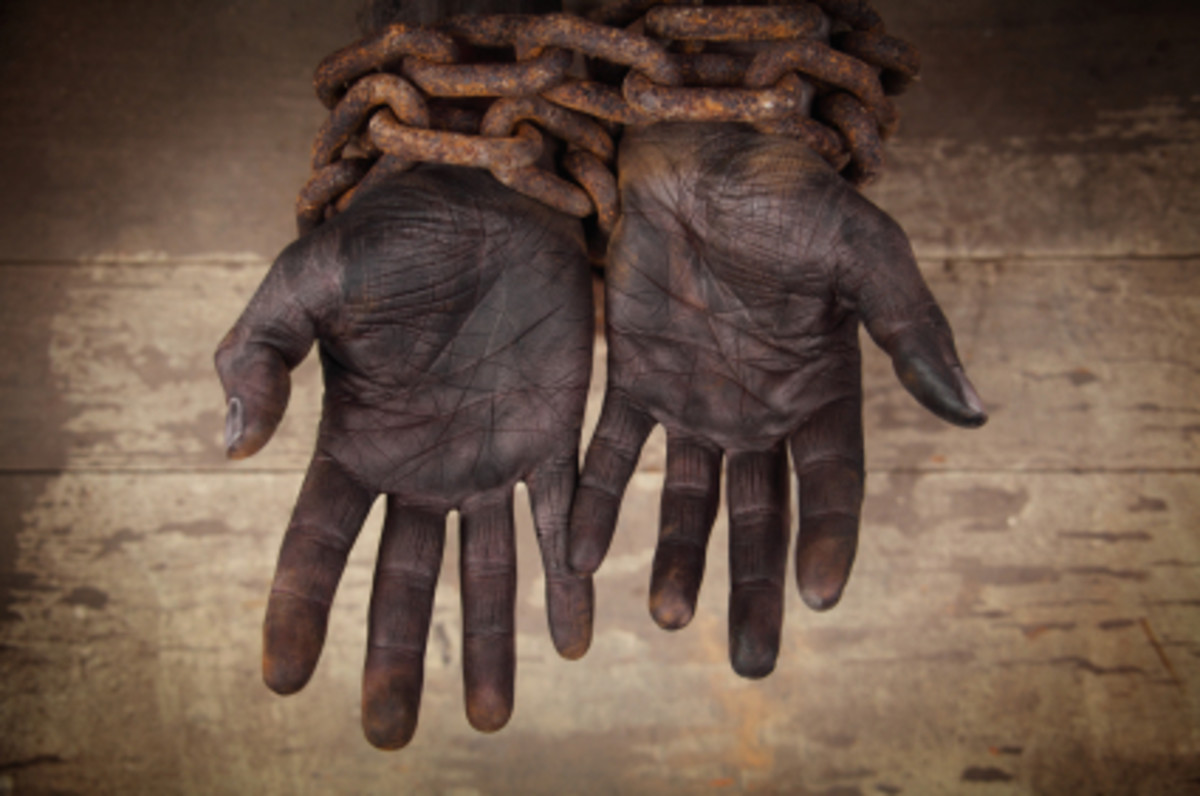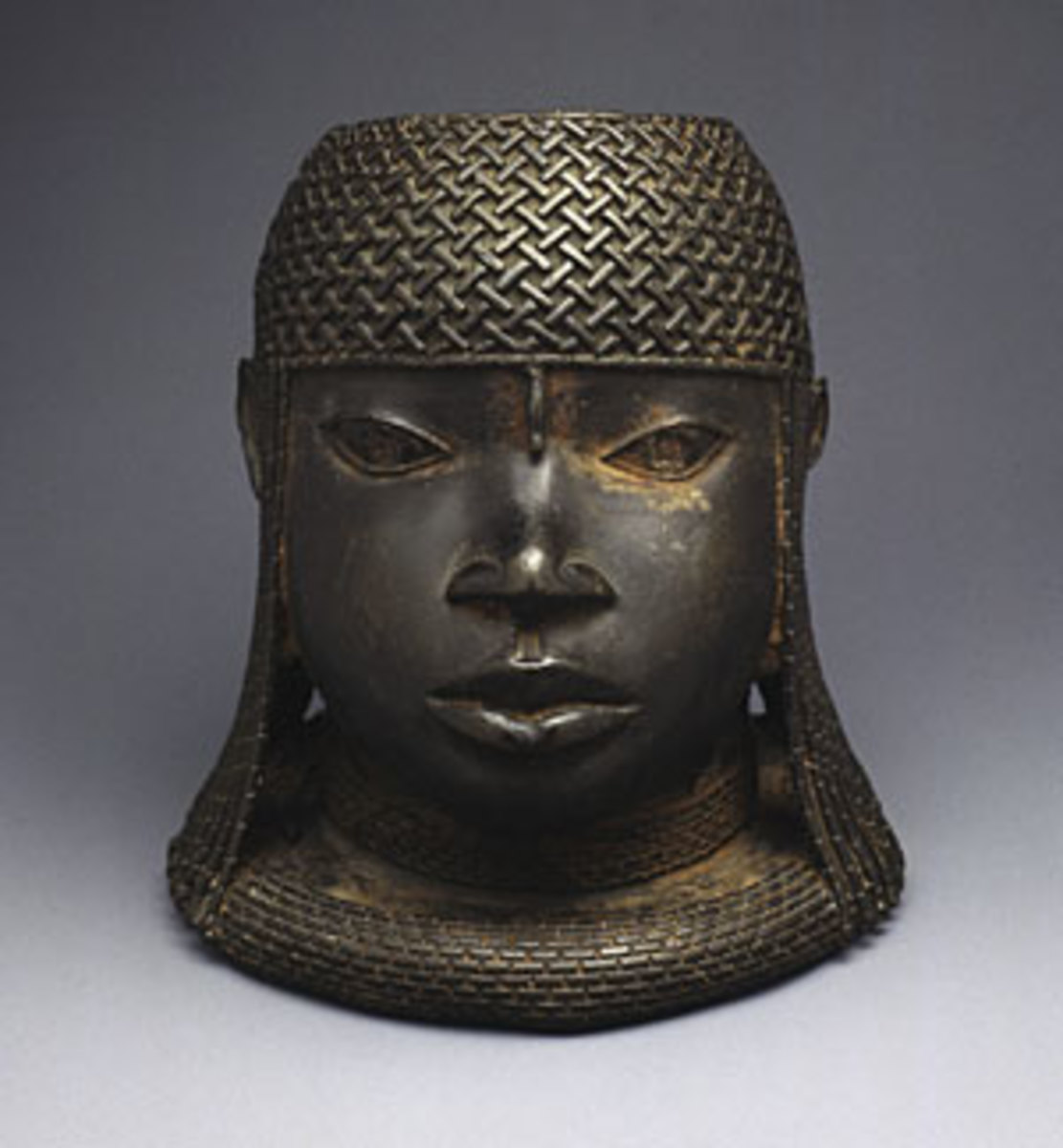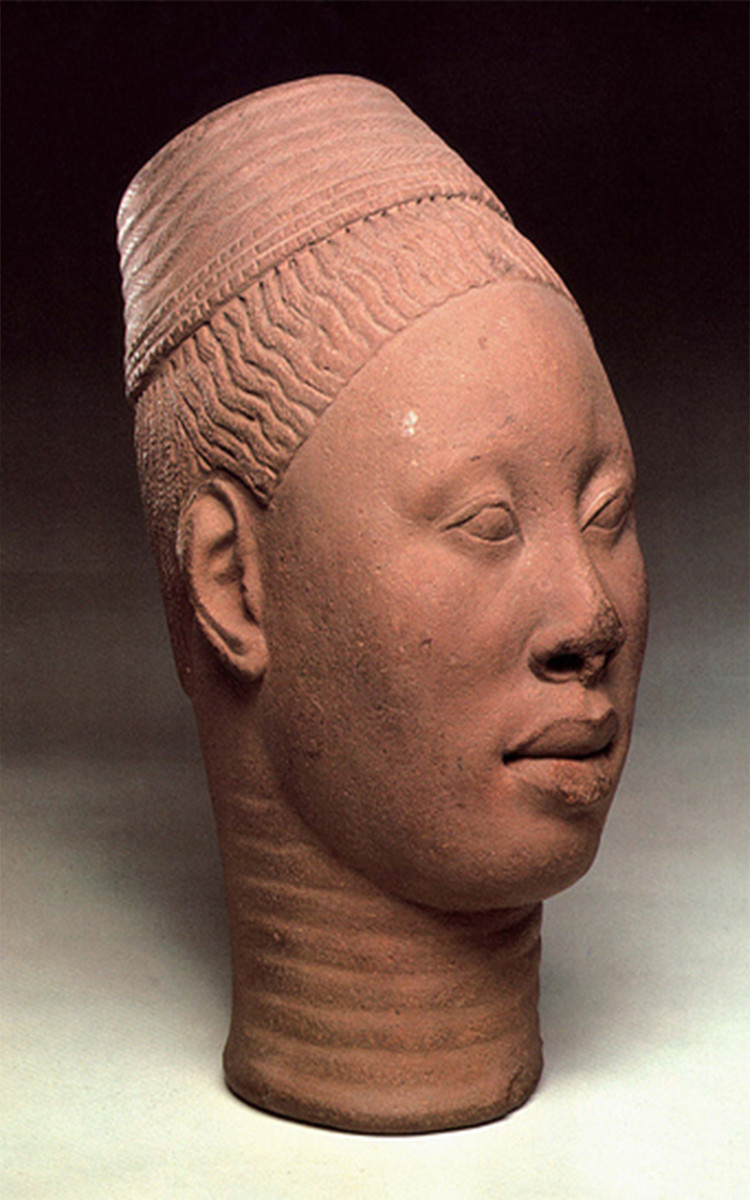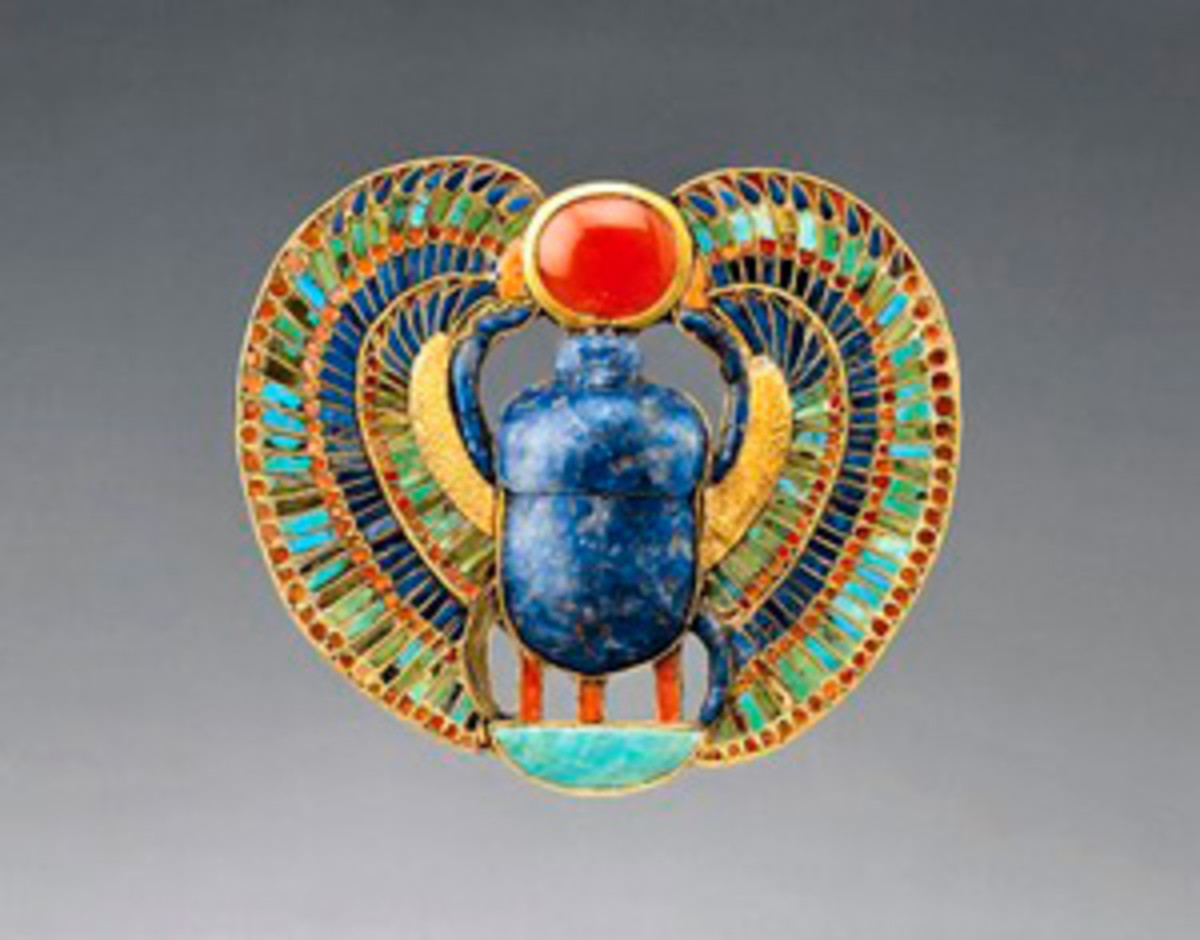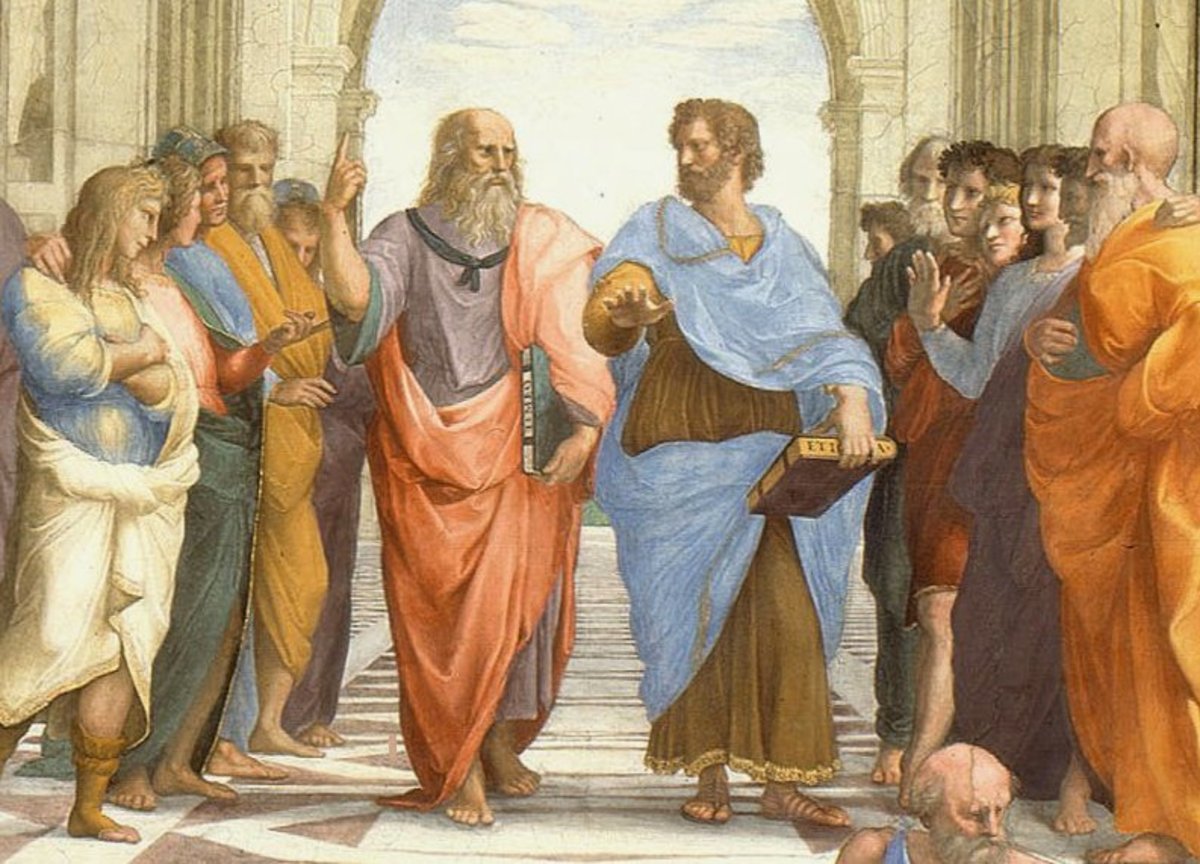When We Were Slaves: From Captivity to Freedom
More people live free around the world than otherwise due to Western Civilization's expansion. Cancerous cultures that murder children in ritualistic religious ceremonies have declined because of the march of Westernizing Roman Christianity. Poverty is less ramped in Western-influenced nations. People are wealthier in Western-influenced nations.
Europeans destroyed, conquered, and created as they have done since the Roman Empire, which single-handedly spread civilization through Europe before the Europeans reached out to other lands.
It is only now that all is settling in the world so that the weak and conquered peoples left in the brutal Roman wake have a voice to decry the Western march of civilization.
It is too late to change history, but not to nurse away venomous remnants of resentment. Thanks to Western civilization, freedom is the cry for much of the world, which was steeped in monarchy and absolutism of some sort in leadership before, during, and after the Western march.
We were all slaves to the prevailing culture in the United States Dixie country. We were all slaves to what, at the time, people thought was the natural order of things, a slave and his master.
Slavery is now about spinning the narrative to placate whoever is in power to avoid political hiccups. For the vast majority of Americans, it is a choice to be a slave to a perspective or a master of the truth, as hideous a revelation it may display.
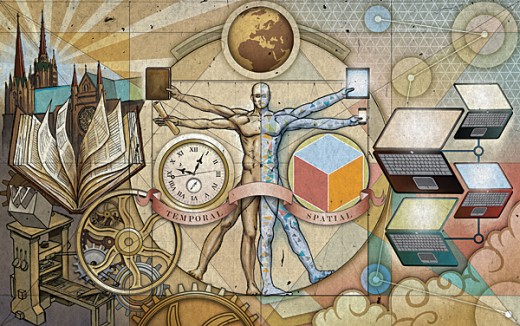
The good the Romans introduced to the world indirectly as it spread through Europe is no mystery, reaching the shores of the British Isle who are the parents of the greatest champion of modern freedom since Rome itself, the United States of America.
On every roadway, ship, plane, train, and car have etched the residue of a great empire that offered fidelity to its citizens. With every Latin word put to parchment and saved, inspired the satellite cultures. influenced by Rome. to elevate themselves to equal opportunity and access to governmental participation.
At one time, we were slaves to ignorance and prejudice. At one time, we were children cowering at strange sounds in the night until we matured, knowing that the unspecified noises frightened us because we did not comprehend what they meant or from whence they came.
Slavery is not unique to any race or culture any more than is a loaf of bread.
Historical Slaves
Thousands of years ago, even two seconds ago, slavery in some form has existed within humanity. Slavery is not unique to any race or culture any more than is a loaf of bread. Putting fellow sentient beings into bondage has existed as long as a more powerful group yielded control enough to force an institution of servitude.
Mark Wildes Esquire states in his religious perspective frankly:
The Jews began as a slave people. Along with other groups living near the ancient Nile, the Jews lived as slaves for many years serving the ancient Egyptian Pharaohs, building for them the great pyramids and the ancient cities of Pithom and Raamses. 1
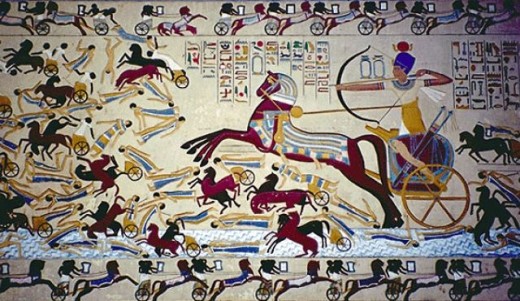
Hebrew Slaves
Egyptian god-kings according to the holy history contained in religious texts, and historical scrolls enslaved the House of Israel, all 12 tribes!
Sheltered within the protection of Ancient Egypt's military might, the Hebrews nurtured a culture for centuries before political change branded them as one of many groups to become the property of the state, slaves.
Historians have conflicting views about the accuracy of the Biblical stories of the existence of Moses, as it pertains to the accounts of Egyptian history. According to Daniel Anderson of Creation Ministries International, "when placed at the proper time, there is an abundance of historical and archaeological evidence to confirm the books of Genesis and Exodus." 2
Ancient Egyptian authorities had a known prejudice, as Philippe Bohstrom wrote in his 2016 article. Bohstrom offered that the ancient "Egyptians were not above altering historical records when the truth proved to be embarrassing or went against their political interests. It was not the praxis of the pharaohs to advertise their failures on temple walls for all to see." 3
Would not a history of a slave-born Egyptian aristocrat's challenge to the head of government resulting in the unrequited release of its population of slaves be a history-altering incident? Whatever the reason Egyptian history does not reflect such a loss in its annals, Hebrew history records the repressive forced labor of its past.
Upon the backs of forced labor grew at least a portion of Egyptian civilization--not only by Jewish industry. As previously stated, slavery has no cultural monopolization within a singular human society.

After Slavery
This brief treatment of Hebrew slavery is not meant to provide an exhaustive listing of the privations of those men and women who endured the lash of the Egyptian guard, and indignities of the same. Following their departure from Egypt, the Hebrews endured a massive cultural shock due to post-traumatic stress. Suddenly receiving freedom from their masters, the Hebrews had no identity of their own on which to hold.
According to the Biblical accounts, the survivors of slavery desired to return to captivity when the food ran scarce. Slaves.
Slaves who did not know how to take care of themselves "murmured against Moses and Aaron in the wilderness... [saying] Would to God we had died by the hand of the Lord in the land of Egypt, when we sat by the flesh pots, and when we did eat bread to the full; for ye have brought us forth into this wilderness, to kill this whole assembly with hunger."4
Next step to freedom: Remove the Stain of Slavery from the Minds of the People
It took about 40 or so years after their freedom, on their own accord. to build a culture. In other words, free from the persecution of Egypt, and isolated in the wilderness for a generation, a new culture developed centered around their religious practices called the Law of Moses.
Moses, who historically grew to maturity in the Pharaoh's household, learned duty through an Egyptian education to stand on equal grounds and footing with his fellow citizens. Learning the worth of his existence as a person in a society that rewarded his accomplishments prepared him for the task of leading a psychologically immature group of people who depended on masters to give them food and drink.
Theophany and education gave Moses the tools needed with which to work to govern these new freedmen. What Moses did not receive in the revelatory processes attested to in the Scriptures, he gleaned from other sources such as the High Priest of Midian (his father-in-law) Jethro to govern.
The slave mentality is just as crippling as physical slavery. Moses' task, by divine decree, was to raise a nation out of obscurity and slavery to what it became. It took time. It took isolation. It took the death of a generation and the education of the rising one.
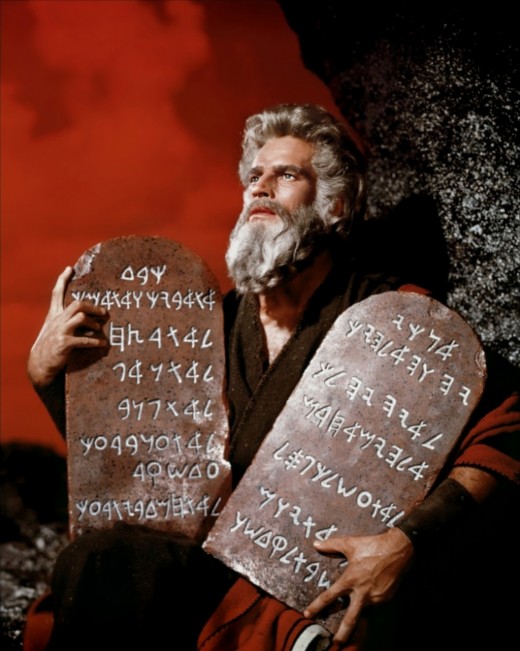
After establishing themselves as a nation in the land of Canaan--present-day Israel, mostly--following their exodus from ancient Egypt, political forces and military conquests reduced the national identity of Hebrew life to a fraction of its former glory.
What slavery could not do, eventually, war and captivity (including assumptive slavery heretofore undocumented) succeeded at destroying the Hebrews.

Today's Results
Slavery occurred among the Hebrews thousands of years ago without completely destroying the identity of that nation. Two of the 12 political bodies referred to as Tribes of Israel in religious context remain identifying as Jews in modern times: Judah and Benjamin.
Genocide and ethnic prejudice could not destroy these descendants of slaves. In 1948 following the destructive homicidal World War 2, the United Nations, with the support of Western governments, chartered the nation of present-day Israel--now a powerful sovereign nation rivaling other Western cultures. To form the nation of Israel, Muslims in the area were displaced and several Arab Muslim nations attempted to destroy Israel unsuccessfully multiple times.
With a powerful military and the destructive power of nuclear weapons, Isreal again is independently able to defend itself against other nations and exists as the only Jewish nation on the planet. Slavery did not have a lasting stifling impact on Israel because of the ability for the slaves to find isolation to grow a strong Judeo culture and identity following slavery that lasts through adaptation and divine preservation. Now, the Hebrew nation successfully defends itself in modern times.
Western culture, in its cry for freedom, has offered liberty to Israel who has successfully assimilated it for a generation, and built a modern nation upon the principles associated with it. To think, at one time Romans lorded over the Jews, but now Roman cultural influence makes Isreal thrive--a secular nation.
Supporting Sources
Mark Wildes, Esq - A History of the Jews 1
Daniel Anderson - Egyptian history and the biblical record: a perfect match? 2
Philippe Bohstrom - Were Hebrews Ever Slaves in Ancient Egypt? Yes 3
The Holy Bible - Exodus 16:2-3 4
This content is accurate and true to the best of the author’s knowledge and is not meant to substitute for formal and individualized advice from a qualified professional.
© 2019 Rodric Anthony Johnson

